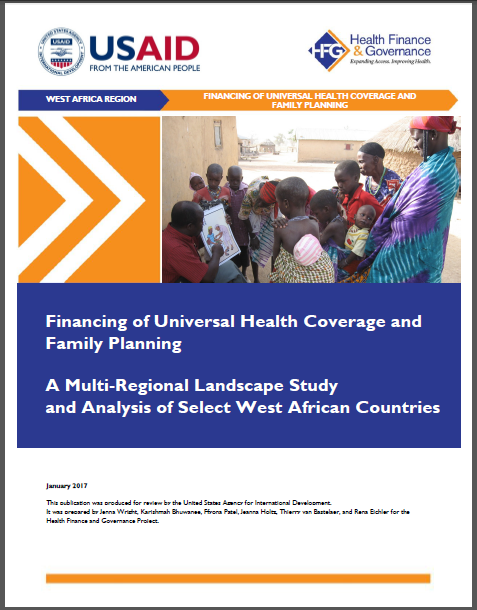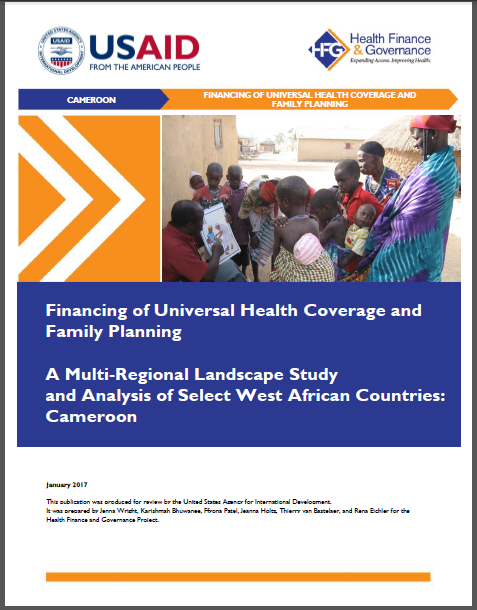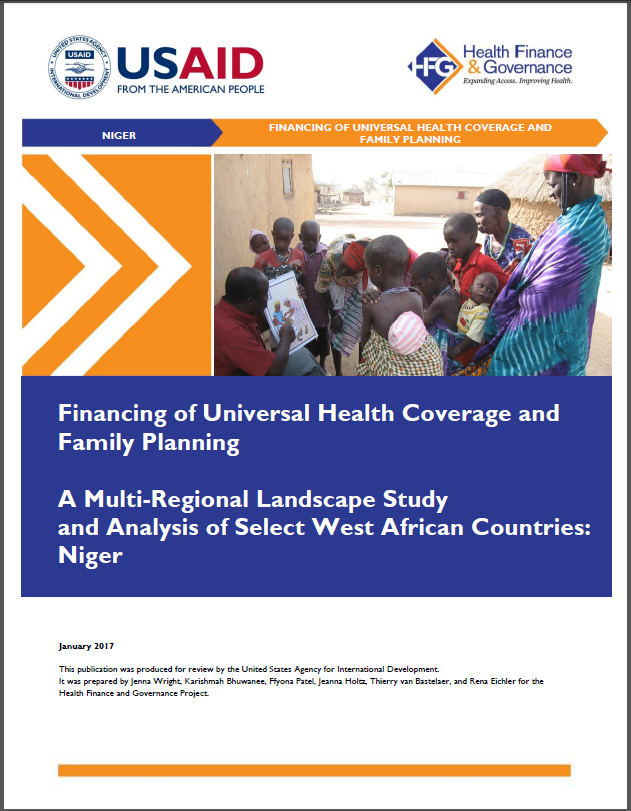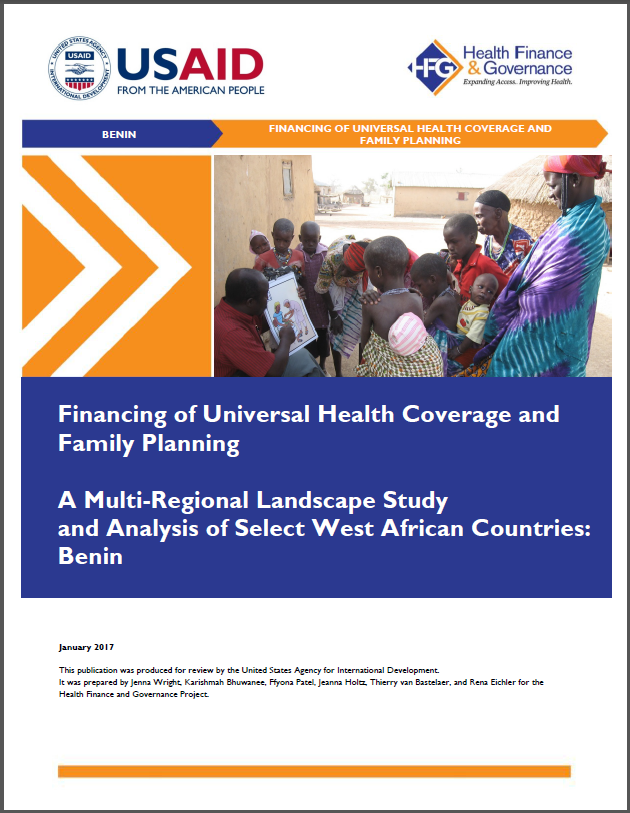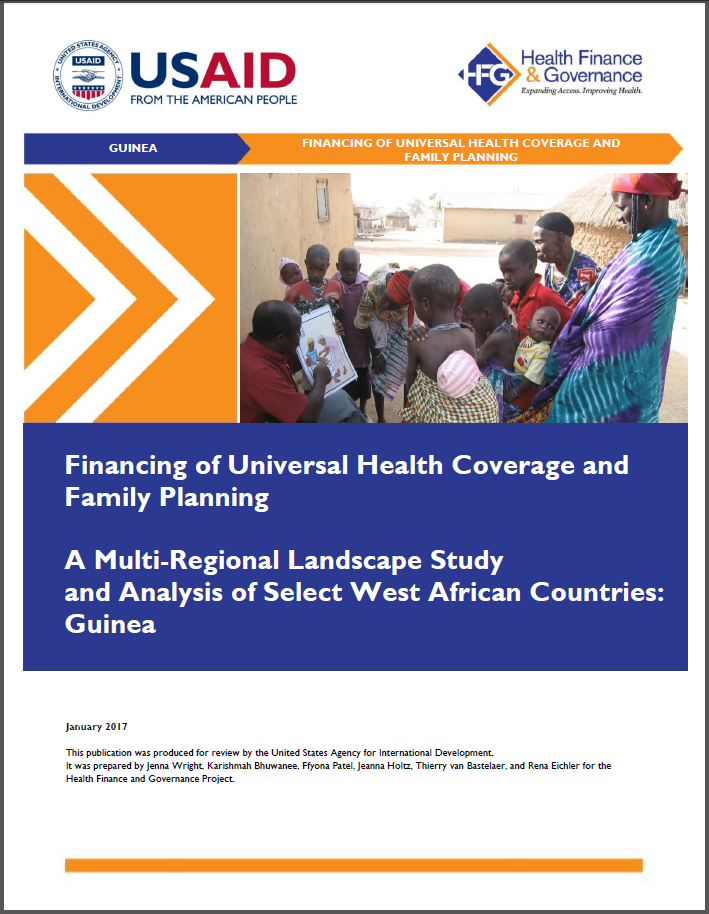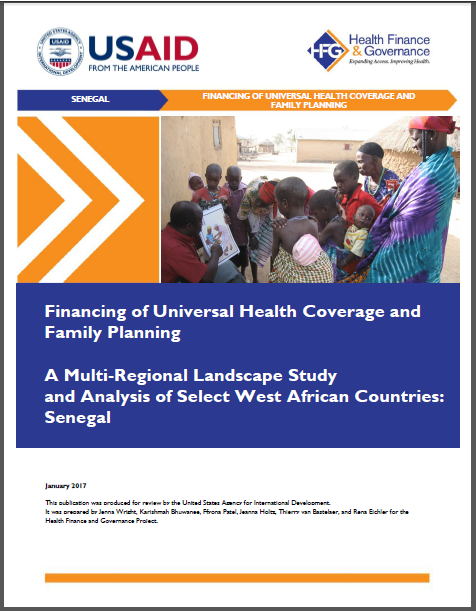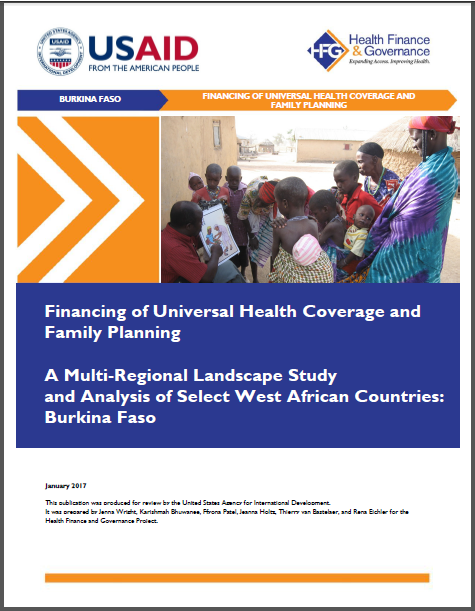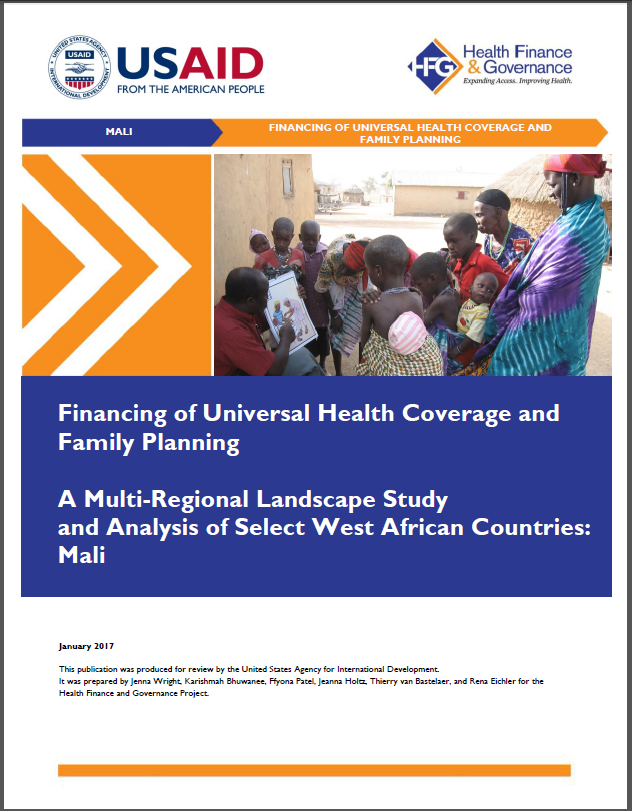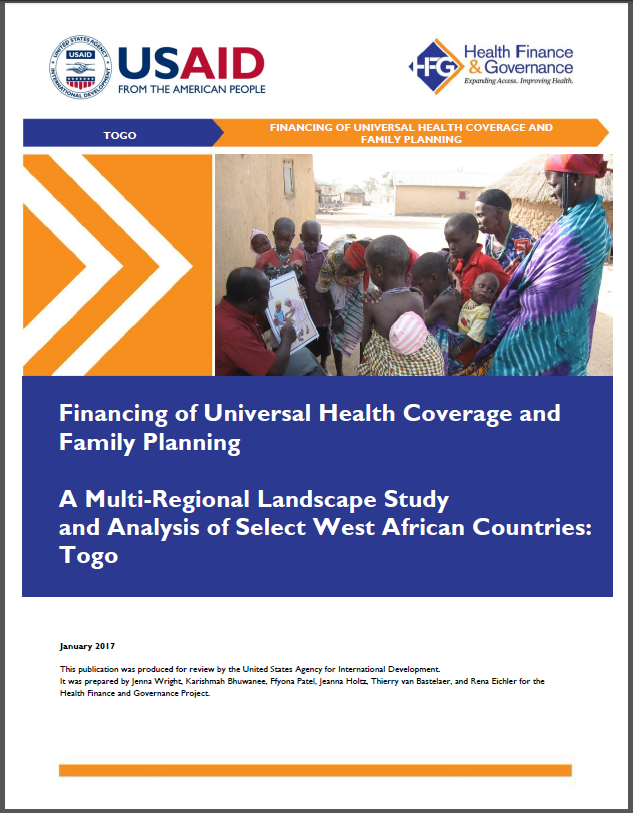Financing of Universal Health Coverage and Family Planning: A Multi-Regional Landscape Study and Analysis of Select West African Countries
Family Planning and Reproductive Health, Health Finance, Health Insurance (CBHI, SHI), Publications, Universal Health Coverage, Where We Work
Recognizing that a healthy population promotes economic development, resilience, and strength, many governments have started pursuing a universal health coverage (UHC) agenda. The international community, national governments, private organizations, and individuals are increasingly recognizing that universal access to family planning is worthy of increased financial investment. Improved access to family planning is also important for a country’s economic development, and it helps countries improve health outcomes for mothers, newborns, and children.
To reach UHC, governments are looking to pursue more and better spending for health care and to promote financial protection for households. While there is no single or perfect model for financing health care, the health policy community can draw on international experience to identify best practices.
This report presents observed trends and lessons learned from a health financing landscape study of fifteen countries. We conducted detailed analyses of eight countries in West Africa: Benin, Burkina Faso, Cameroon, Guinea, Mali, Niger, Senegal, and Togo (“core countries”). We also reviewed seven countries at various stages of achieving UHC to draw lessons learned and inform potential strategies: Ethiopia, Ghana, Indonesia, Kenya, Malaysia, Nigeria, and South Africa (“reference countries”).
Ministries of Health, national UHC agencies, regional governments, UHC stakeholders in the West Africa region, the United States Agency for International Development / West Africa Regional Health Office and country Missions, and the private sector may take interest in the findings of this report.
You can also download specific chapters below, in English or French.




